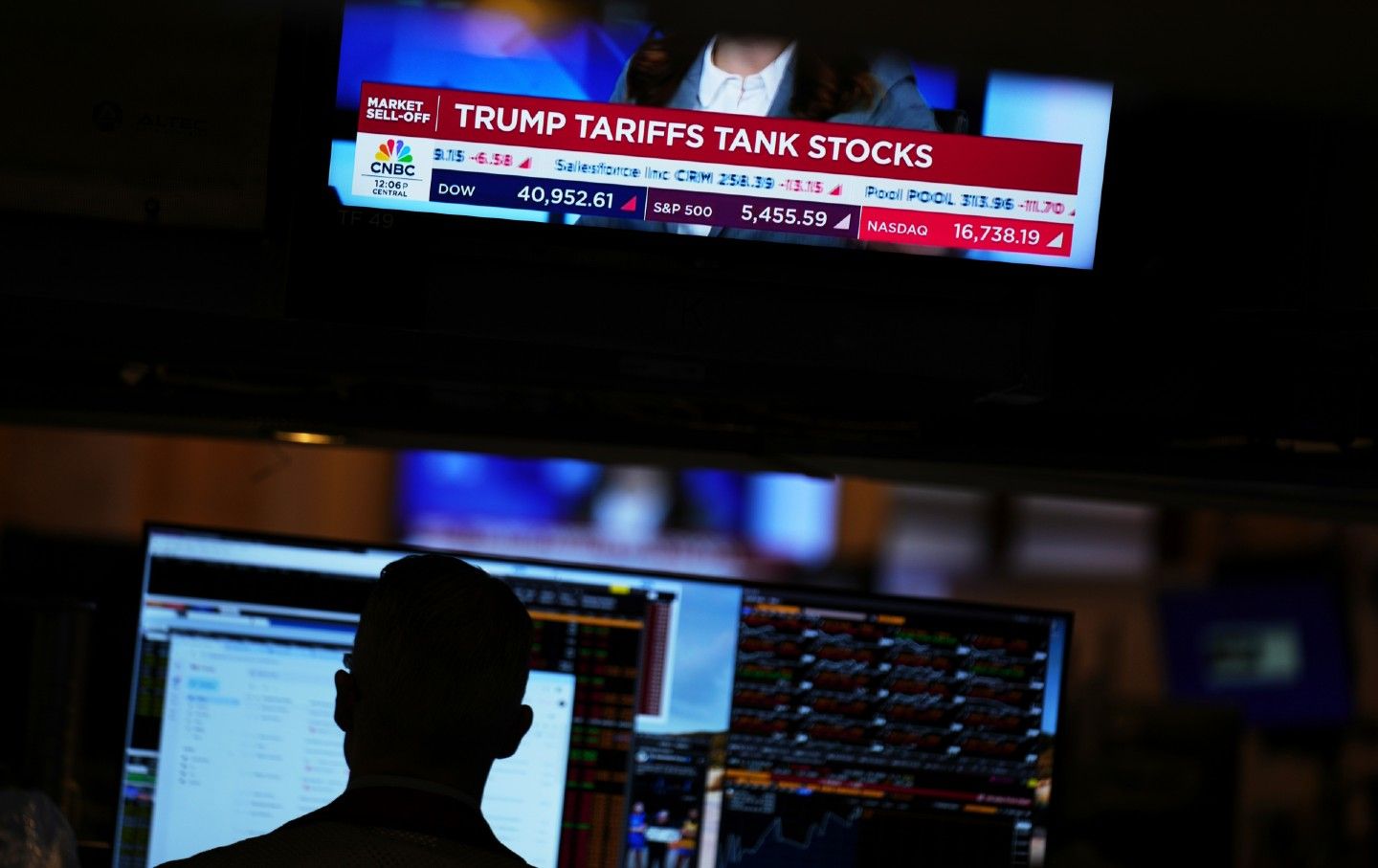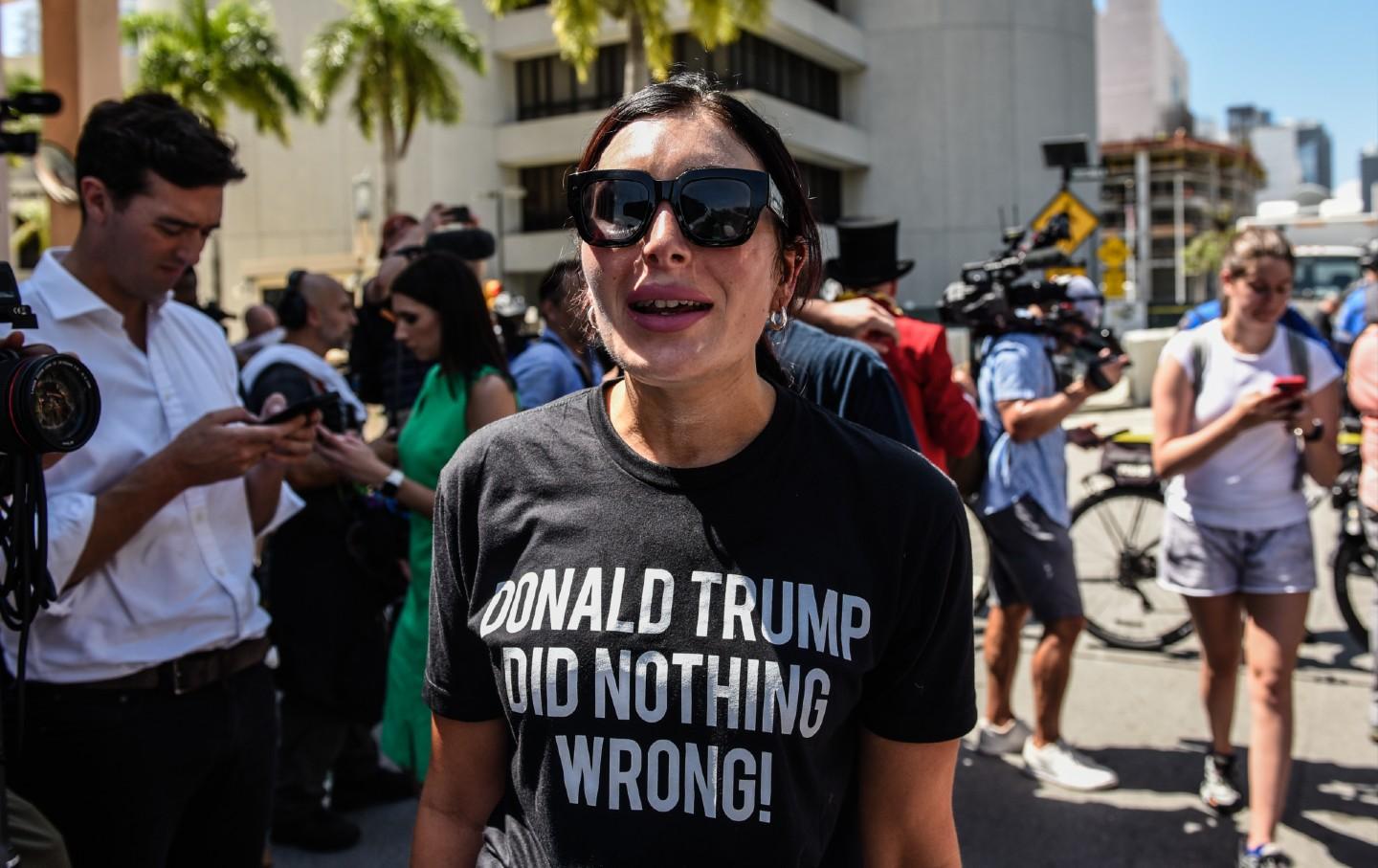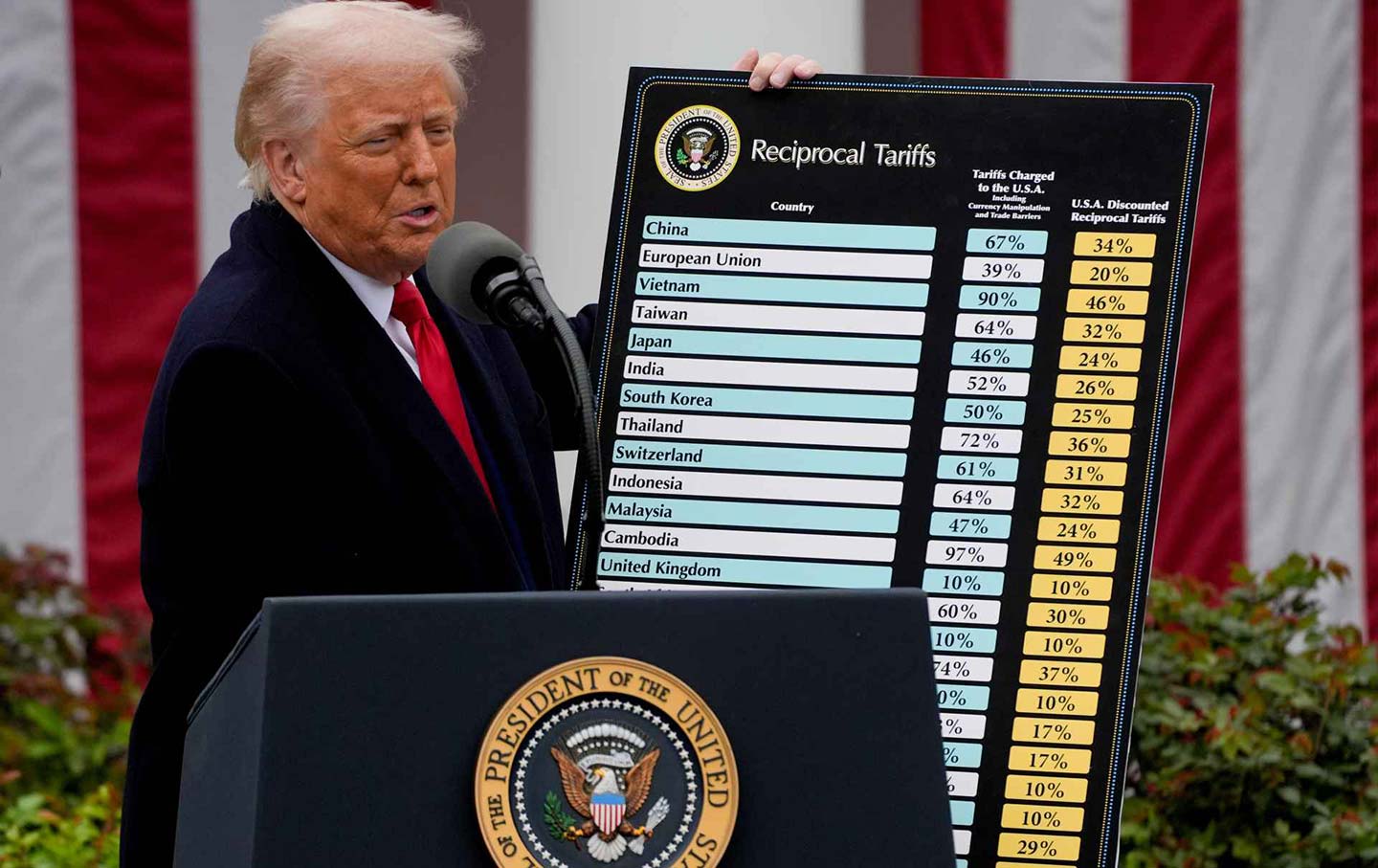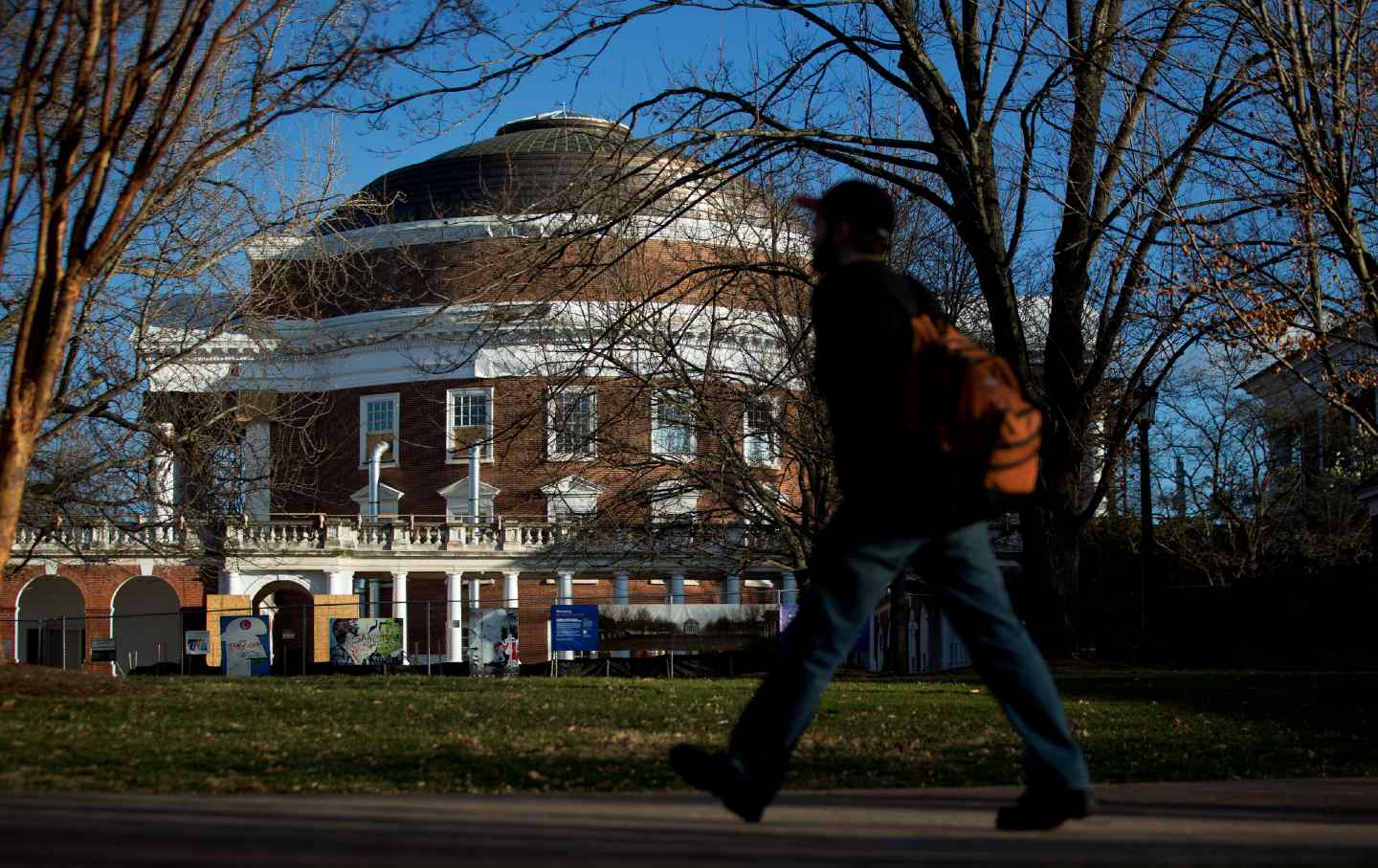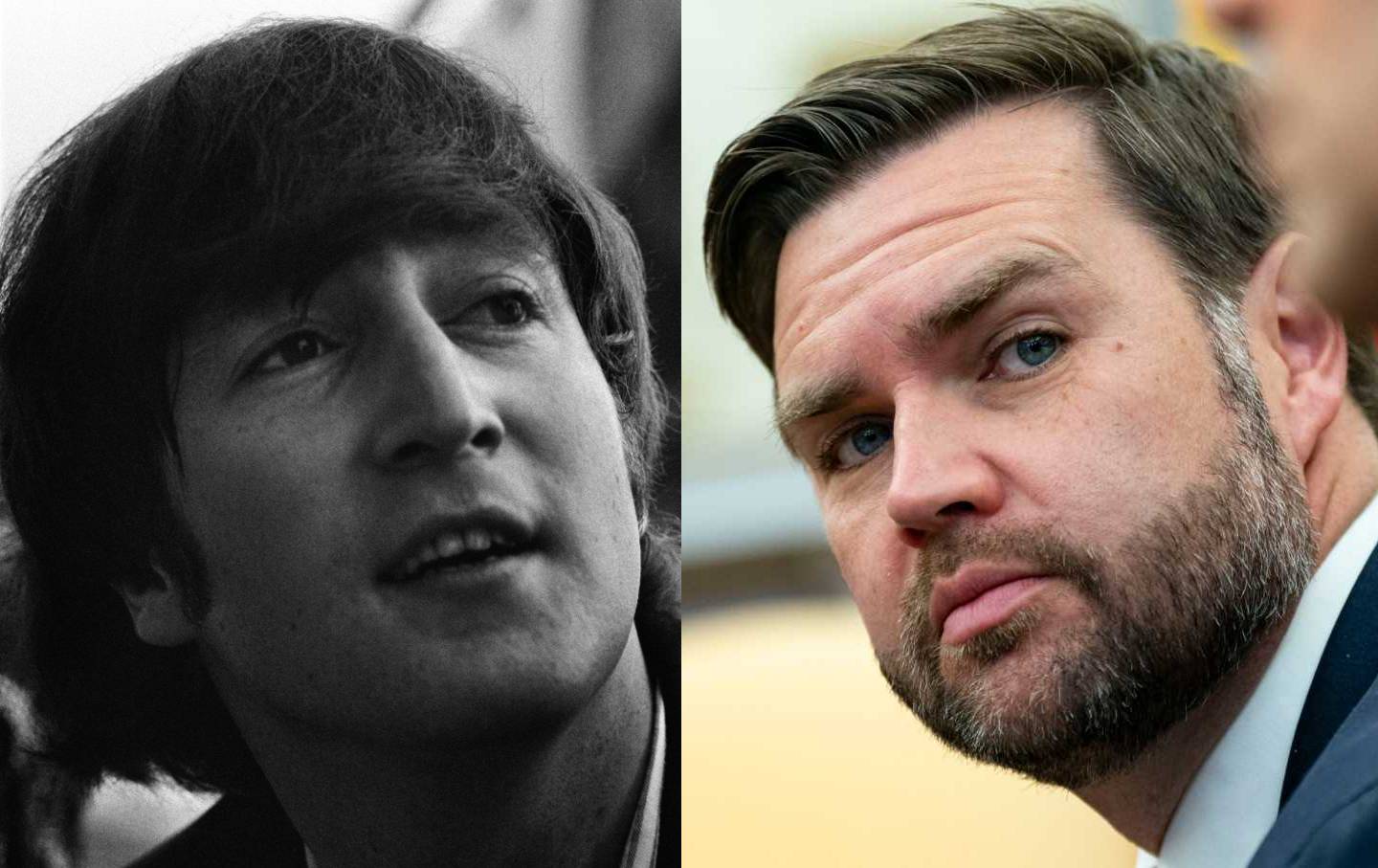Who Owns Donald Trump?
The former president’s financial troubles open up rich opportunities for political attack.
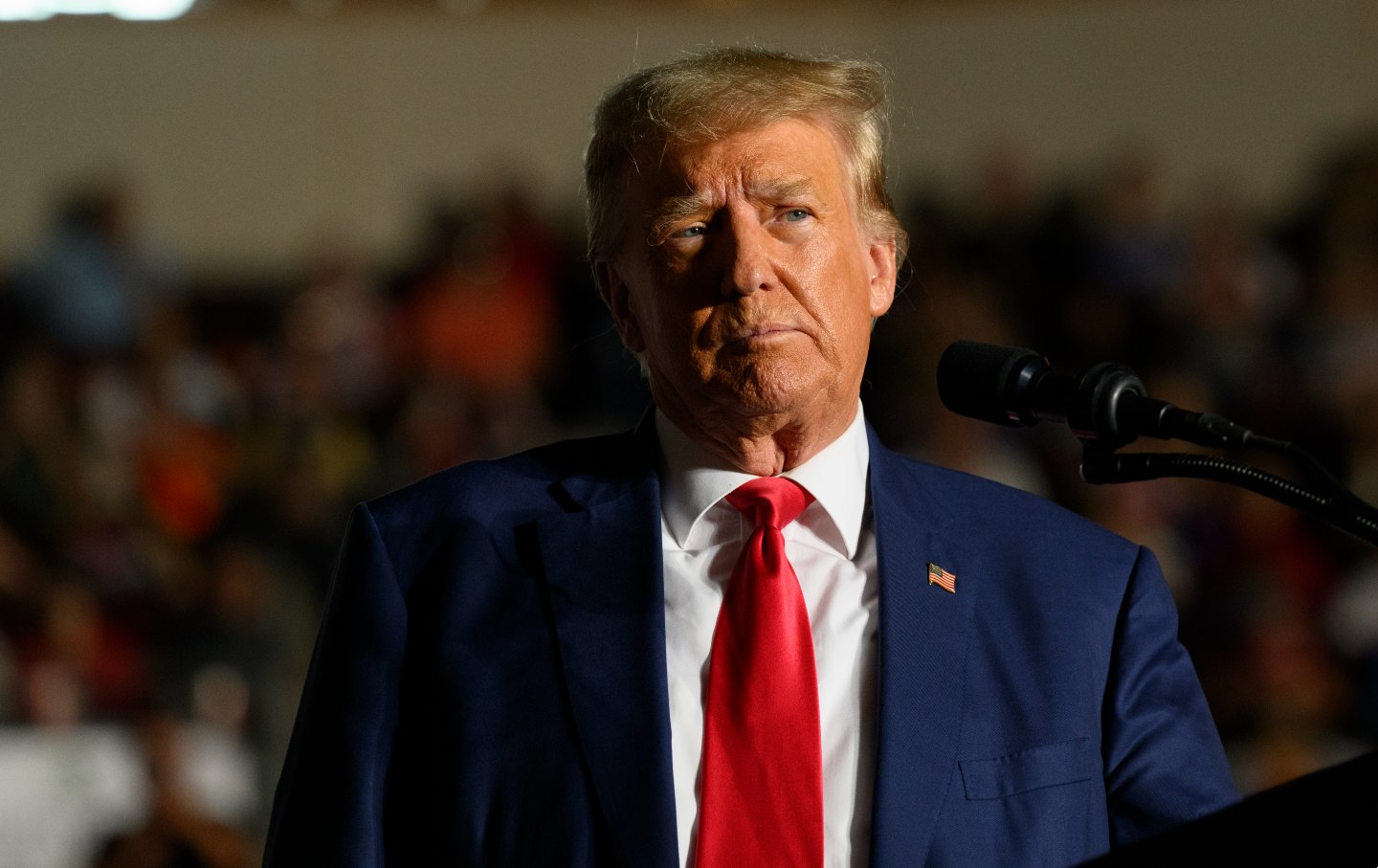
In the dirge “Atlantic City,” the second track of Bruce Springsteen’s mournful masterpiece Nebraska (1982), a down-on-his-luck tough guy laments, “I got debts that no honest man can pay.” Spiraling downward, he decides to make some money by going to the Jersey Shore, rife with criminals and casinos, to “do a little favor” for a hoodlum.
Donald Trump, who opened up the Trump Plaza Hotel and Casino in Atlantic City two years after Springsteen’s song was released, presents himself as belonging to a higher class than New Jersey wise guys—but he knows all about debt and desperation. That gambling den was shuttered in 2014, a familiar pattern with the real estate magnate’s projects. Trump’s financial history is often described, euphemistically, as checkered. The Atlantic City casino is only one of many failed enterprises Trump has tried his hand at (including Trump University, Trump Steak, Trump Vodka, and Trump: The Game). He’s resorted to bankruptcy for his businesses four times (including twice for the Atlantic City casino, in 1992 and 2009).
Despite having debts that no honest man can pay, Trump has remained a favorite with lenders, maintaining opaque and troubling relationships with institutions like Deutsche Bank. Although superficially a bad loan risk, Trump remained attractive to lenders for most of his business career because his brand (Trump the dealmaker) had enough cachet that one could plausibly believe one of his endeavors would pay off. And in fact, Trump did ultimately hit pay dirt by winning the presidency in 2016. Since then, he’s been the favored child of money managers for another reason: Having a once and possibly future president in your pocket opens up all sorts of leverage possibilities. Imagine if you could call the standard-bearer of one of America’s two big political parties anytime for a “little favor.”
Now gearing up for his third presidential run, Trump finds himself again in financial trouble—this time due to repeated losses in the courtroom. Trump’s money troubles have dire implications not just for him and the Republican Party (with the RNC foolishly agreeing to help with their candidate’s legal costs) but also for American democracy. Trump’s financial predicament could be a boon to the Democrats—but only if they are willing to spell out what it means for a politician to be so deeply in hock to plutocrats.
The scale of Trump’s fix is staggering. As a result of a judgment in the New York fraud case, he is required to secure by today (Monday, March 25) bonds to cover a $464 million penalty. Failure to pay could result in asset seizure, with Trump already complaining to supporters that he could lose control of that iconic eyesore, Trump Tower. As Susan B. Glasser of The New Yorker notes, the payment on the fraud case is just the start, since
Trump owes another eighty-three million dollars for defaming the writer E. Jean Carroll after she accused him of sexual assault. With four criminal cases against the former President still pending and hordes of attorneys to pay, Trump’s leadership PAC reported in a new filing this week that it had burned through more than five million dollars in legal fees for him last month alone, which is more than the entirety of what the PAC took in.
It’s unclear how Trump can pull himself out of the financial pit he’s fallen into. Bankruptcy is one option—although an embarrassing one for someone running for high office. Another source of needed cash could be Wall Street, as the former president plans to take Trump Media public. Some of the money Trump needs will come from Republican donors. As the Associated Press reported on Thursday, “Donald Trump’s new joint fundraising agreement with the Republican National Committee directs donations to his campaign and a political action committee that pays the former president’s legal bills before the RNC gets a cut.” As The New York Times notes, “In practice, what that means is that even modestly large contributors—anything above $6,600—will fund the account that Mr. Trump has used to defray legal costs.”
On Wednesday, speaking to a group of wealthy donors in Dallas, Joe Biden joked, “Just the other day, a defeated-looking guy came up to me and said, ‘Mr. President, I need your help. I’m being crushed with debt. I’m completely wiped out.’ I had to say, ‘Donald, I can’t help you.’”
Biden’s quip got a big laugh from the millionaires and billionaires he was talking to (including Never Trump Republican Mark Cuban). On its own terms, it’s an innocent enough gibe. But if it is the main thrust of Biden’s critique of Trump’s money problems, it represents a return to a failed argument. In 2016, Hillary Clinton recruited Mark Cuban, Michael Bloomberg, Warren Buffett, and other tycoons to suggest that Trump was not very successful financially. The frequent refrain from Democrats was that Trump was “not a real billionaire.”
The “not a real billionaire” argument just does not work politically. For one thing, it undercuts any claims Democrats have to economic populism, since it implies that if Trump were a real billionaire, he would be more acceptable. Parading figures like Cuban, Bloomberg, and Buffett also suggests Democrats are in thrall of the ultra-rich.
Secondly, whether Trump’s actual net worth adds up to $1 billion or not is immaterial, since he’s lived like a billionaire for decades because the banks have always been willing to open the money pump for him. The ordinary person looking at Trump’s lavish lifestyle would be hard-pressed to distinguish him from a Bloomberg or Cuban. That Trump has managed to do this without actually earning a cent makes him seem clever rather than contemptible, if you have no problem with economic inequality.
Thirdly, the “not a real billionaire” argument treats Trump as personally flawed rather than an example of deep systematic failure. This undermines one of the most potent argument against Trump, that he’s a fake populist who pretends to be independent of the donor class but is more an avatar of plutocracy than anyone else in American politics.
Trump’s big selling point is that his wealth makes him an independent force in American politics, that he’s too rich to be bought. From 2015 to now, he’s often derided his rivals as mere puppets of the donor class. This has been an effective line of attack in part because pro-system politicians, whether Republicans or Democrats, are loath to push back with the most obvious retort: that Trump is more beholden to big money than anyone else. Hillary Clinton’s mockery of Trump as Putin’s “puppet” might have convinced some hard-core partisan Democrats, but it had little traction, not least because it ignored the more disturbing truth that Trump, like many American politicians (including Clinton herself), is a puppet of Wall Street.
In a recent post, New York Times columnist Ross Douthat made an interesting argument that Trump’s dependence on Wall Street money will make him a more moderate figure in his second term. According to Douthat, Trump’s “desperation for donor money as he deals with mounting legal bills has him kissing up to Wall Street financiers. And in a similar spirit, his campaign just leaked its desire to put Republican senators like Tom Cotton and Marco Rubio—classic hawkish internationalists, not Tucker Carlson guests—in charge of the national security bureaucracy.” For Douthat, a conservative who is looking for an excuse to join the Trump bandwagon, this means Trump’s second term could be “normal-ish.” So no need to fret about Trump’s “bloodbath” speech or the possibility that he’ll pursue the extremist agenda outlined in the Project 2025 playbook (assembled by the most rabid Trump supporters in the world of right-wing think tanks).
Popular
“swipe left below to view more authors”Swipe →This counterintuitive argument falls apart on close inspection. After all, figures like Cotton and Rubio, although nominally more mainstream, are ultra-hawks, ready to wage war on China and Iran as well as Russia. Their domination of foreign policy would not be “normal-ish.” Further, Wall Street would welcome much of the Project 2025 agenda such as the evisceration of the regulatory state.
Based on the political success of Trump in 2016 and Joe Biden in 2020 (when the Democratic Party adopted some of the social democratic agenda of Bernie Sanders), it is doubtful that many Americans are hungry for the supposed moderation of Wall Street ruling the roost.
Biden’s best bet is to stop joking with billionaires about Trump’s poverty and instead tell the unvarnished truth: Trump will continue to roll in the money because he’s wholly owned by Wall Street and is always eager to serve their interests. And if Biden holds fast to economic populism as a message, the contrast with Trump will be stark.


